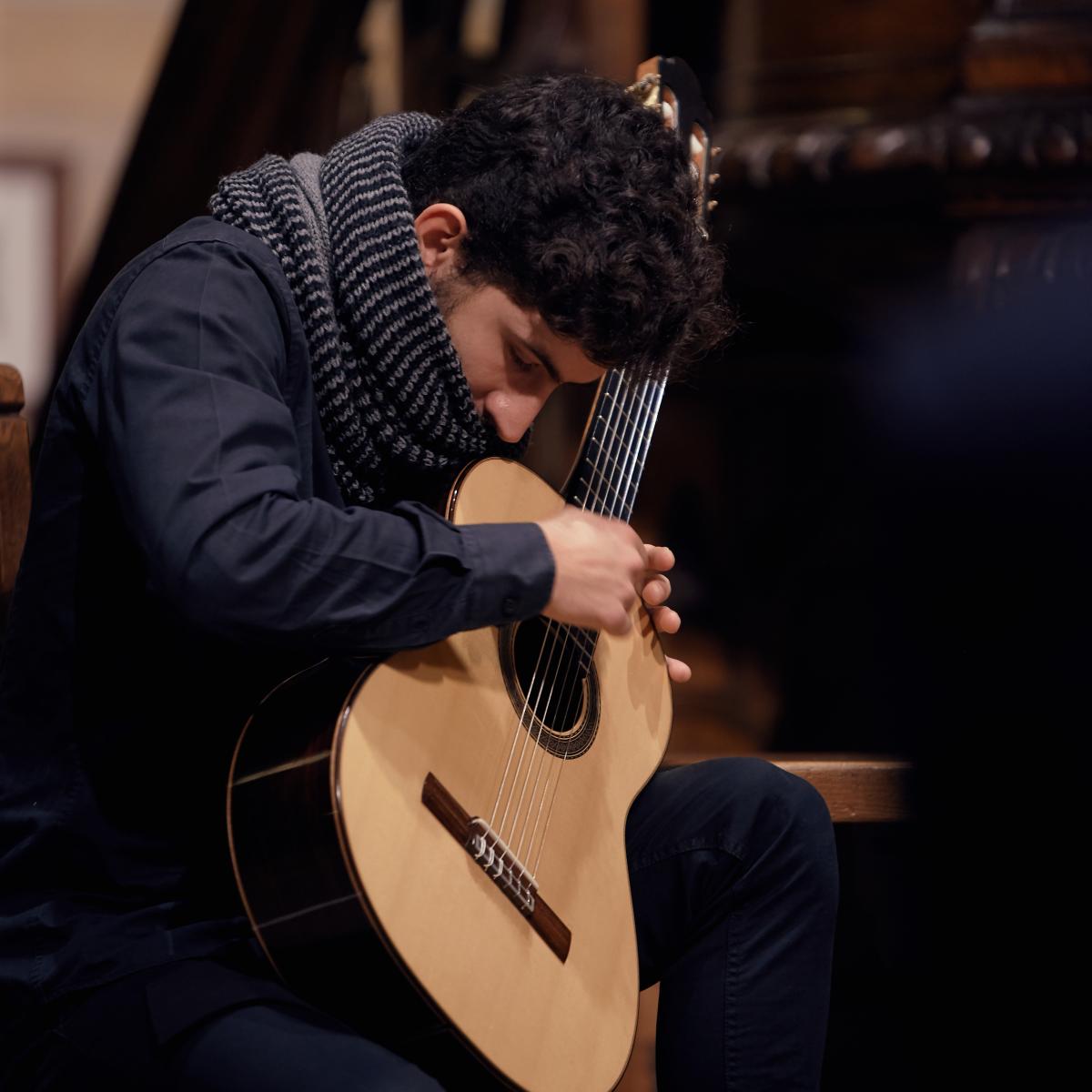
Master
Guitar
Choosing to study in the Guitar class in Maastricht means studying in a class of absolute level which is internationally recognised as one of the most relevant in the international guitar scene. The guitar class is led by a lecturer who is devoted to your cause and who tailors the lessons to your needs while working towards the optimisation of your musical and personal qualities.
Meet our team
Meet your lecturers
Curriculum
Curriculum
Before you apply
Admission
requirements
First round
The audition consists of two rounds. For the first round, the candidate needs to record 2 videos that contain:
-
Video 1: A short introduction of him/herself in English: talk about your musical experiences, your motivation to study music, your main subject and why you choose to audition at Conservatorium Maastricht.
-
Video 2: In the second video, the candidate demonstrates his/her artistic and technical skills. The video should be recorded in one take, without cuts or any edits. The candidate should start by speaking their name and student number of Conservatorium Maastricht. The video must be between 20 and 30 minutes. There are however no specific requirements in terms style or degree of difficulty for the video. The choice of the programme is left completely to the candidate, for this shows clearly to the teacher the inclination, taste and character of her-him and gives crucial information to the teacher. A technically easy Sarabande (for example from the BWV 995) can be much more difficult to perform than a show off piece where only manual skills are requested. For these reason also thematic programmes are welcome (for example: 19th century sonatas, or baroque Fantasias).
Examples of repertoire (not binding):
-
J.S. Bach: Violin works
-
D. Scarlatti: Sonatas (any)
-
M. Giuliani: Rossiniana (any)
-
F. Sor: Sonatas or Variation-set (any)
-
G. Regondi: any work
-
M. Llobet: any work
-
M.M. Ponce: Sonate Romantique or Thema varieè et Final
-
W. Walton: 5 Bagatelles
-
B. Britten: Nocturnal
-
L. Berio: Sequenza
Additional videos (not required): the candidate may provide concert video registrations.
The videos should be uploaded to an online platform such as YouTube.com or Vimeo.com. It is the candidate’s responsibility to make sure that the video links work.
Second round
The committee may decide to invite the candidate for an online or in-person live audition after reviewing the video material. The repertoire for the live audition remains the same. Additional repertoire requests can be made by the committee.
In the second round, the candidate is always invited to an online interview with one of the Master Project Coaches. In this interview we discuss the candidate's motivation and experience in the field of research and cultural entrepreneurship. The Master Project Coach furthermore determines the level of English proficiency.